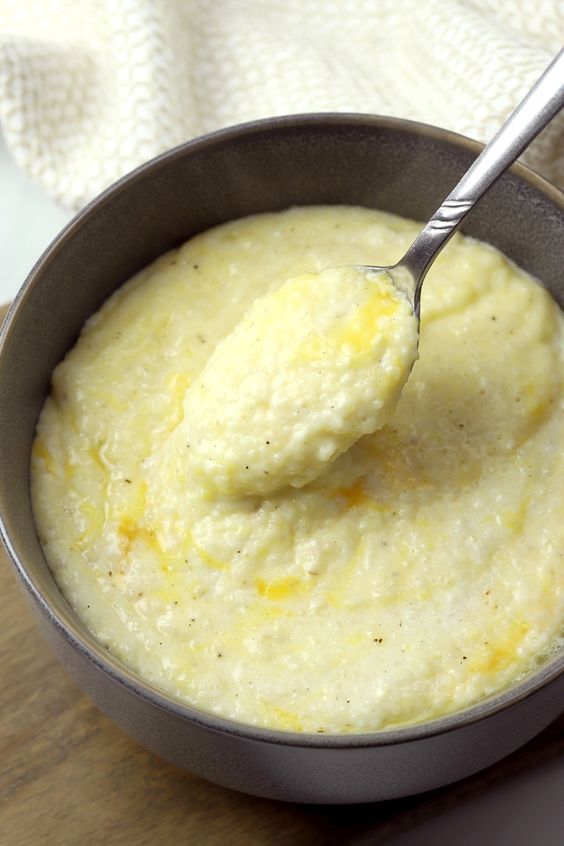Can Dogs Eat Grits?
Ever wondered, “Can dogs eat grits?” If you’re a pet parent who loves southern cuisine, you might have considered sharing this comfort food with your furry friend. Grits are a staple in many households, but are they safe for our canine companions? Let’s dive deep into the world of grits and uncover whether they can be a part of your dog’s diet.
What Are Grits?
Grits have a rich history and are a beloved dish in many parts of the world, particularly in the southern United States. But what exactly are grits?

Definition and Origin
Grits are basically form of porridge which are made of boiled cornmeal. They originated from Native American cuisine and have been a staple in Southern cooking for centuries.
Types of Grits
There are several types of grits, each with its unique texture and flavor:
- Hominy Grits: Made from corn kernels that have been treated with an alkali in a process called nixtamalization.
- Stone-Ground Grits: Coarsely ground and have a more robust corn flavor.
- Instant grits: Already cooked and dried for fast and easy preparation.
- Quick Grits: Finely ground and cook faster than stone-ground grits.
How Grits Are Made
Grits are made by grinding dried corn kernels into coarse meal. The meal is then boiled in water or milk until it reaches a smooth, creamy consistency.
Nutritional Ingredients of Grits
Understanding the nutritional content of grits can help determine if they’re suitable for your dog.
Macronutrients
- Carbohydrates: Grits are high in carbs, providing a quick source of energy.
- Proteins: Grits have a minor quantity of proteins.
- Fats: Grits are low in fat, making them a light food option.
Micronutrients
- Vitamins: Grits provide essential vitamins like B vitamins (niacin, riboflavin, folate).
- Minerals: They contain minerals such as iron, magnesium, and phosphorus.
Comparison to Other Grains
Compared to other grains like rice or quinoa, grits are less nutrient-dense but can still be a decent source of energy.

Is It Safe for Dogs to Eat Grits?
The safety of feeding grits to dogs depends on several factors.
General Safety
Plain, cooked grits are generally safe for dogs in moderation. However, it’s crucial to avoid adding any seasonings or toppings that could be harmful.
Factors to Consider
- Portion Size: Feed grits in small amounts to prevent overloading your dog’s digestive system.
- Preparation Method: Ensure grits are cooked plain without any additives like salt, butter, or cheese.
Potential Risks and Benefits: Can Dogs Eat Grits
- Risks: Overfeeding grits can lead to digestive issues or weight gain.
- Benefits: In small amounts, grits can provide an energy boost and be a tasty treat.
Benefits of Grits for Dogs: Can Dogs Eat Grits
When served correctly, grits can offer several benefits to dogs.
Energy Source
Grits are high in carbohydrates, which makes them an excellent energy source for your dog. If your dog is particularly active or needs an energy boost, a small serving of grits can help replenish their energy levels.
Digestive Health
Plain, cooked grits can be gentle on your dog’s stomach, making them a suitable option for dogs with sensitive digestion. The smooth texture and easily digestible nature of grits can help soothe the digestive tract and prevent irritation.
Palatability
Many dogs enjoy the taste and texture of grits, which can be particularly helpful if you have a picky eater. Adding a small amount of plain grits to your dog’s regular food can make their meal more enticing and encourage them to eat.
Low in Fat
Grits are naturally low in fat, which can be beneficial for dogs that need to maintain a healthy weight or have dietary restrictions related to fat intake. This makes grits a good occasional treat that won’t significantly contribute to weight gain.
Source of Vitamins and Minerals
While not as nutrient-dense as some other grains, grits still provide essential vitamins and minerals such as B vitamins (niacin, riboflavin, folate) and minerals like iron and magnesium.
Easy to Prepare
Grits are simple to prepare and can be made quickly, making them a convenient option for dog owners. As long as they are cooked plainly without any harmful additives, grits can be a quick and easy treat for your dog.
Hydration
When cooked with water, grits can contribute to your dog’s hydration. The water content in grits can help keep your dog hydrated, which is especially important during hot weather or after exercise.

Possible Health Issues for Dogs Due to Grits
While grits can be a safe and occasional treat for dogs, there are potential health issues that pet owners should be aware of. Here are some of the possible problems that can arise from feeding grits to dogs:
Digestive Issues
- Constipation: Grits can have a binding effect on the digestive system. Overfeeding grits, especially in large quantities, can lead to constipation. This is particularly true if the dog isn’t accustomed to eating grains.
- Diarrhea: Introducing grits too quickly into your dog’s diet can cause diarrhea. The sudden change in diet can disrupt their digestive system, leading to loose stools and discomfort.
Allergic Reactions
Some dogs may have an allergy to corn, which is the main ingredient in grits. Corn can produce allergic symptoms including:
- Itching: Excessive scratching or licking.
- Swelling: Inflammation around the face, ears, or paws.
- Gastrointestinal Distress: Vomiting or diarrhea.
If your dog shows any of these signs after eating grits, discontinue feeding them and consult your veterinarian.
Weight Gain
Grits are high in carbohydrates, which can contribute to weight gain if fed in large amounts or too frequently. Obesity in dogs can lead to several other health issues, such as:
- Joint Problems: Extra weight puts stress on the joints, which can cause arthritis or other joint-related issues.
- Heart Disease: Excess weight can lead to heart problems, as the heart has to work harder to pump blood throughout the body.
- Diabetes: A diet high in carbohydrates and excess calories can increase the risk of developing diabetes.
Nutritional Imbalance
Feeding grits regularly can lead to a nutritional imbalance. Grits do not provide a complete range of nutrients that dogs need for overall health. Over-reliance on grits can result in deficiencies in essential vitamins and minerals, which are crucial for maintaining a healthy immune system, coat, and overall well-being.
Potential Additives
Many grits recipes for humans include additives like salt, butter, cheese, and sugar. These ingredients can be harmful to dogs:
- Salt: Excessive salt can lead to sodium ion poisoning, causing symptoms like vomiting, diarrhea, tremors, and seizures.
- Butter and Cheese: High-fat content can cause pancreatitis, a painful and potentially serious condition.
- Sugar: Added sugars can contribute to obesity and dental problems.
Long-Term Health Risks: Can Dogs Eat Grits
Regularly feeding grits can have long-term health consequences, such as:
- Chronic Obesity: Persistent weight gain can lead to a host of chronic health conditions.
- Diabetes: Regular high-carb intake can increase the likelihood of developing diabetes.
- Joint and Mobility Issues: Long-term obesity can exacerbate joint and mobility issues, impacting your dog’s quality of life.

Best Way to Serve Grits to Dogs
To ensure grits are safe and enjoyable for your dog, follow these serving tips.
Proper Preparation
Cook grits plainly in water without adding any seasonings or toppings.
Avoiding Harmful Additives
Never add ingredients like salt, butter, cheese, or sugar to the grits you plan to serve your dog.
Serving Size Recommendations
Al. A tablespoon or two is usually sufficient for small to medium-sized dogs.
Alternatives to Grits for Dogs: Can Dogs Eat Grits
If you’re looking for other grain options, consider these alternatives:
| Alternative | Benefits |
|---|---|
| Brown Rice | High in fiber, aids digestion |
| Quinoa | Complete protein, rich in vitamins and minerals |
| Oatmeal | Good source of soluble fiber, helps with digestion |
| Sweet Potatoes | Rich in vitamins A and C, supports immune health |
| Pumpkin | High in fiber, helps with digestive issues |
Conclusion: Can Dogs Eat Grits
Grits can be a safe and enjoyable treat for your dog when served in moderation and prepared plainly. While they provide an energy boost and can be a tasty option, it’s essential to be mindful of portion sizes and avoid harmful additives. keep an eye on your dog’s reaction after new food and if you watch any reaction or symptom contact with your Vat asap.
FAQS: Can Dogs Eat Grits
Are grits good for dogs to eat?
Grits can be good for dogs when served in moderation and prepared plainly. They provide a quick source of energy due to their high carbohydrate content. However, they should not be a regular part of a dog’s diet and should always be free from additives like salt, butter, or cheese.
Is grit safe for dogs?
Plain, cooked grits are generally safe for dogs to eat in small amounts. It’s important to avoid serving them with any harmful additives or in large quantities, as this can lead to digestive issues or other health problems.
Why do dogs eat grit?
Dogs might eat grits because they enjoy the taste and texture, or simply because they see their owners eating it and want to join in. Dogs are naturally curious and often want to try different foods, especially those that are part of their human family’s meals.
Do dogs eat oatmeal?
Yes, dogs can eat oatmeal. It can be a healthy treat for dogs when cooked plain without any added sugar, salt, or other flavorings. Oatmeal is high in fiber and can be good for dogs with digestive issues.
What are grits made of?
Grits are made from dried corn that is ground into coarse meal. The corn can be treated in different ways to produce various types of grits, such as hominy, stone-ground, instant, and quick grits.
Is porridge grits?
No, porridge and grits are not the same. Porridge is typically made from oats that are boiled in water or milk until they reach a creamy consistency. Grits, on the other hand, are made from ground corn and have a different texture and flavor.
Can Dogs Eat Okra

Jahanzaib Kaleem is a passionate and knowledgeable pet writer and veterinarian dedicated to enhancing the well-being of pets and educating pet owners around the world. With years of experience in veterinary medicine and a deep love for animals, Jahanzaib combines his medical expertise with a flair for writing to deliver insightful and practical advice on pet care.





